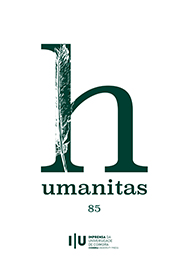“Augmented Reality” in Martial: The Use and the Abuse of Olfactory and Gustatory Systems in Martial’s Epigrams
DOI:
https://doi.org/10.14195/2183-1718_85_8Keywords:
Martial, Epigrams, sensory system, olfactory system, gustatory systemAbstract
This paper examines Martial's innovative use of the senses of smell and taste in his epigrams, revealing how he transcends the limitations of the written word by inviting readers to interact with his work on a visceral level. By associating specific odors and flavors with social status, morality, and individual character, Martial constructs a sensory map of Roman society.
The analysis explores how Martial employs a range of techniques, from the evocation of foul odors to represent immorality and low social status to the satirical use of coprophagy to condemn the excesses of Roman elites. Through these sensory experiences, Martial not only reinforces the moral and social critiques central to his epigrams but also invites readers to inhabit the sensory world of imperial Rome.
Furthermore, the paper investigates how Martial's use of the senses aligns with his preference for the epigram as a genre rooted in the everyday and the corporeal, challenging the hierarchy of literary and sensory values established by ancient philosophy. Ultimately, Martial's epigrams demonstrate the power of the olfactory and gustatory senses as vehicles for expression and critique, offering a unique and insightful window into the social, cultural, and literary dynamics of ancient Rome.
Downloads
Downloads
Published
Issue
Section
License
Copyright (c) 2025 Humanitas

This work is licensed under a Creative Commons Attribution 4.0 International License.
Authors retain copyright and grant the journal right of first publication with the work simultaneously licensed under a Creative Commons Attribution License that allows sharing the work with recognition of authorship and initial publication in this journal.










